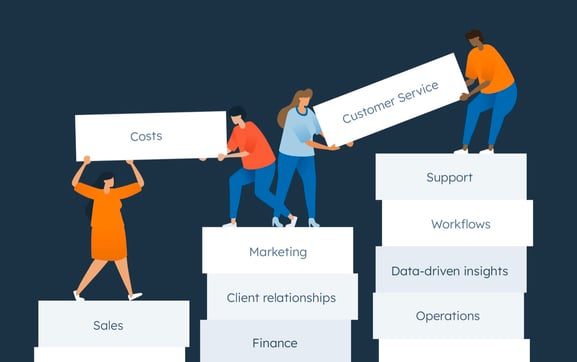A good website is one that achieves the goals of the website owner as well as the goals of the user of the page. The goal of an E-commerce website is to have a user add products to a shopping cart and then complete the purchase. The goal of a construction company’s website is to have someone call, email, or message about project opportunities. The goal of a car dealership’s website is to have someone call, email, or message about a listed car or truck. In order for the goal of the website owner to be reached, the website needs to have clear navigation and purpose, relevant and original content, good trustworthiness/security features, responsiveness/fast website load speed, and modern design. The article will describe what makes a good website by discussing what a user needs in order to have a good user experience.
Sticking to the proven menu structure with the logo in the top left and the menu on the left side or in the middle of the page is generally the best option as the configuration will not confuse your user. The menu should generally have a ‘Home’ menu choice on the leftmost side of the page. Even though it may seem obvious, keeping the menu structure consistent across all pages and devices is very important. Having too many levels of links is also not advised. To reach the website owner’s goal, the menu should be structured with a strong purpose to inform the user and lead them to the desired goal.
Even though many website owners may wish they could place a large ‘Buy’ button on the first page of their website and have every visitor purchase, providing valuable content to users to help them make well-informed choices is the best option for both user and website owner. Creating unique, valuable, and interesting content that is shared by users can turn a website into a valuable asset that consistently brings in new customers and is what makes a good website.
Good trustworthiness/security features are also what makes a great website as a user is going to want to be assured their credit card and other personal information is kept safe. For an E-commerce business, using HTTPS is necessary to safeguard web purchases. Providing a clear privacy statement that details how a user’s information will be used is also important and some platforms won’t allow you to purchase advertising without it.
The next important part of what makes a good website is making sure that your website is responsive. Responsive web design is an approach where websites render well on a variety of different devices and screen sizes. Some business owners who try to create their own websites or have one created cheaply end up with a site that does not function well across different devices. Another issue can be fast website load time. Some businesses have websites that take multiple seconds to load and can take even longer on a mobile device. Unless a website is functioning as sophisticated software, a modern website should not take multiple seconds to appear.





More Stories
WordPress Maintenance: Tips for WordPress Website Maintenance
What Makes a Good Website?
Websites For CPAs & Accountants To Effectively Market Accounting Services